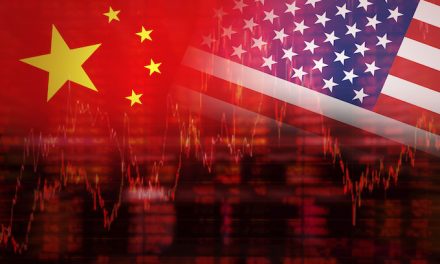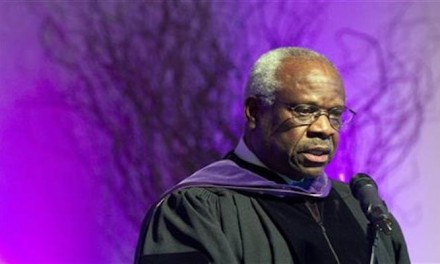It was a rough day for Gov. Gavin Newsom.
In the morning, news broke that he attended a birthday party with several other households as his administration urges Californians to avoid seeing friends and family. The incident has prompted even some of his supporters to question his judgment and privilege.
The same day, a Sutter County judge finalized a ruling saying he overstepped with some of his executive orders.
Newsom has since apologized for attending the party, admitting it was a “big mistake.” But new photos of the event called into question his assertion that he “took safety precautions.”
EXCLUSIVE: We've obtained photos of Governor Gavin Newsom at the Napa dinner party he's in hot water over. The photos call into question just how outdoors the dinner was. A witness who took photos tells us his group was so loud, the sliding doors had to be closed. 10pm on @FOXLA pic.twitter.com/gtOVEwa864
— Bill Melugin (@BillFOXLA) November 18, 2020
And he’s still fighting the ruling in court.
On Monday, his lawyers argued in a new court filing that the ruling limiting his executive power could imperil his ability to respond to future emergencies.
In the Friday decision, Sutter County Superior Court Judge Sarah Heckman said the Democratic governor overstepped his role in the executive branch with a June executive order.
Newsom had cited California’s Emergency Services Act to justify the order, N-67-20, which detailed how counties should run the all-mail general election in November. He argued that the act gives him the power to issue executive orders to respond to emergencies like the coronavirus pandemic.
In their legal challenge to the order, Republican Assemblymen Kevin Kiley and James Gallagher argued that the governor violated the California Constitution by creating a new law, which is the Legislature’s job.
Heckman agreed with Kiley and Gallagher, ruling that the order created a new statute and that Newsom’s action exceeded his authority under the Emergency Services Act.
Ruling on mail-in voting
Lawmakers went on to pass the policy contained in the executive order into law, so the judge’s ruling against it doesn’t have a practical effect on that policy.
She did not challenge Newsom’s basic authority to issue orders and suspend laws during emergencies.
But the judge also issued an injunction against Newsom, saying he can’t make further executive orders that create statute. She also wrote that “many” of Newsom’s other orders — he has issued more than 50 — likely violate the state Constitution by changing “statutory law.”
On Monday, Newsom appealed to a higher court to issue an emergency stay of the injunction, which has been temporarily stayed pending a response from his opponents. Newsom’s lawyers say the injunction has the potential to harm California’s future emergency response efforts because it is overly broad.
The judge’s order doesn’t establish a standard for which executive orders are legal and which aren’t, Newsom’s lawyers argue. That lack of clarity could “call into question dozens of unrelated and as-of-yet uncontroverted actions that the State has taken in response to the COVID-19 pandemic.”
The ruling will also hamstring Newsom’s future emergency response efforts while the case moves through the courts, they argue. If a wildfire or earthquake struck tomorrow, they argue, Newsom would have no way of knowing if his responses violated the injunction.
“The trial court’s vague and overbroad injunction thus causes immediate, irreparable harm,” they wrote. “It calls into question vast swaths of the State’s emergency response to COVID-19 (far beyond the confines of this case), and it chills the State’s response to every potential new emergency.”
California’s Emergency Services Act broadly allows Newsom to respond quickly to emergencies, Loyola Law School Professor Jessica Levinson said.
He’s not allowed to create new laws that would extend beyond the scope of an emergency — for example, he can’t issue an emergency executive order dictating how elections should be run after the pandemic is over. But Levinson said the measure does grant him emergency powers.
“You have to be careful that the governor isn’t acting as a one-man Legislature, but in emergency circumstances, you have to give him some latitude,” she said.
Levinson said the judge’s ruling likely needs some clarification to be enforceable, but is clearly intended to put Newsom on notice.
“It’s a warning to him,” Levinson said of Heckman’s injunction. “She clearly thinks he’s overstepped.”
Other Newsom COVID-19 orders
Newsom has issued executive orders requiring people and businesses to comply with directives from the state’s Department of Public Health. That’s how his shutdown orders and mask mandate work.
The Sutter County ruling doesn’t affect those orders. Separate legal challenges have been filed against many of Newsom’s COVID-19 orders, but they are still working their way through the courts.
In other cases, judges have upheld Newsom’s authority, such as in a challenge to his order that requires churches follow his administration’s COVID-19 precautions.
Lawmakers from both parties initially were critical of Newsom’s approach, accusing him of not including them in the decision-making process. But as the pandemic has worn on, complaints from his own party have subsided.
Republican lawmakers continue to blast Newsom’s choices, saying he’s overstepped.
The French Laundry event also escalated criticism of the fact that his children, who attend a private school with waiver to operate in person, aren’t learning remotely as many others are.
“As he attends a birthday party for a lobbyist and sends his children to private school, Gov. Newsom refuses to provide evidence for his orders denying Californians the same opportunities,” Kiley tweeted Friday.
Kiley, who represents Rocklin, says the legal victory is significant even if it doesn’t have an immediate practical effect.
“The decision, if nothing else, is really important in just establishing that we still have the rule of law in California, that the governor isn’t above the law,” he said.
The Legislature should craft the state’s COVID-19 policies through the traditional legislative process, which subjects policies to public input and scrutiny, Kiley said.
Kiley says he’s reviewing Newsom’s other executive actions to determine which he can challenge based on Heckman’s ruling. He pointed to Newsom’s overall reopening blueprint and orders that dictate sick leave and workers comp policies as other examples of improper actions.
In the meantime, his original challenge continues to proceed.
“We’re confident that one way or another the governor’s actions will be found unconstitutional,” Kiley said.
___
(c)2020 The Sacramento Bee (Sacramento, Calif.)
Visit The Sacramento Bee (Sacramento, Calif.) at www.sacbee.com
Distributed by Tribune Content Agency, LLC.
—-
This content is published through a licensing agreement with Acquire Media using its NewsEdge technology.



















Recent Comments